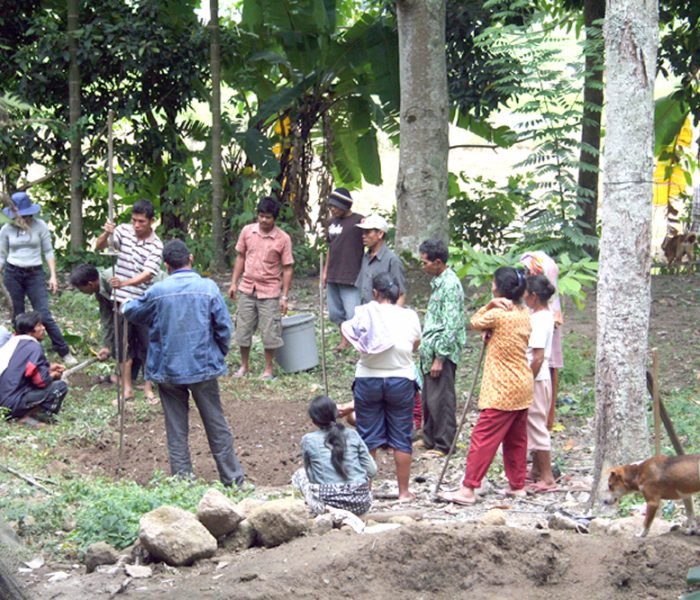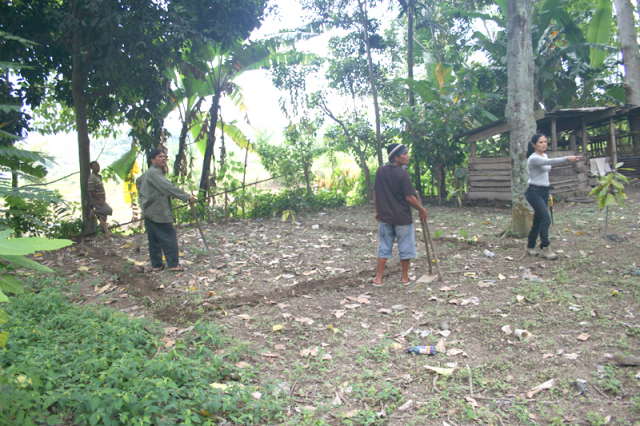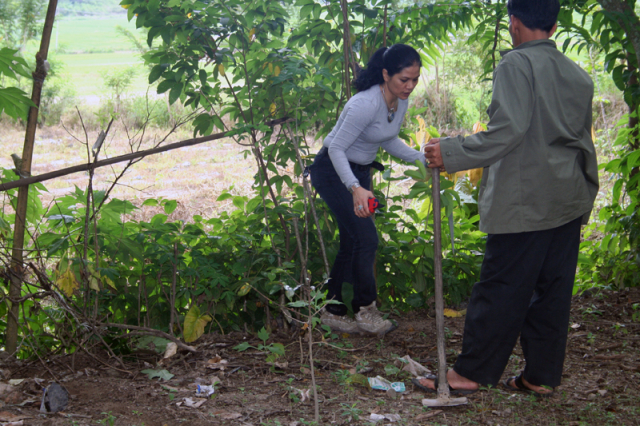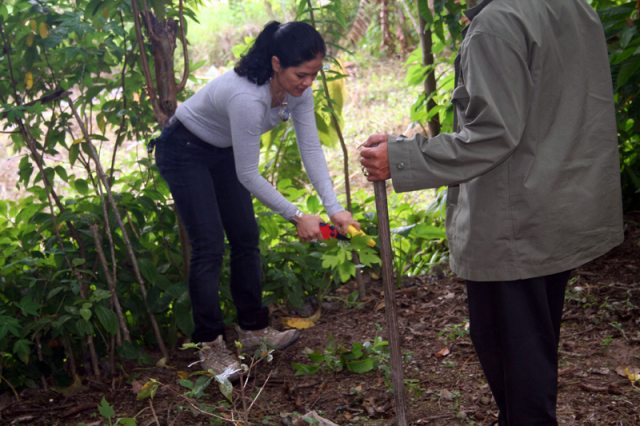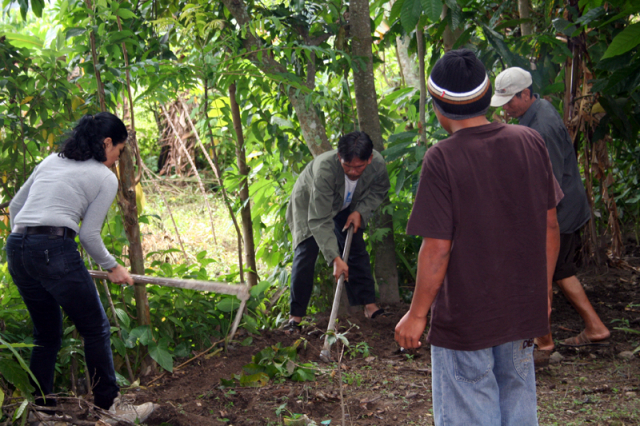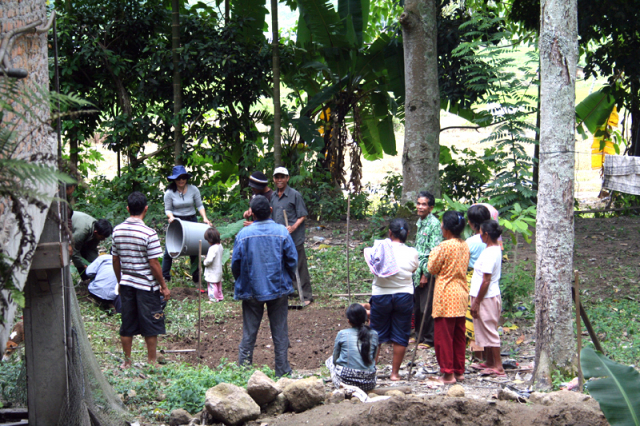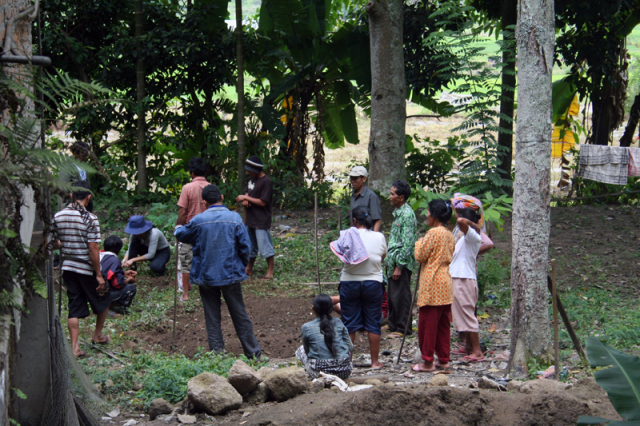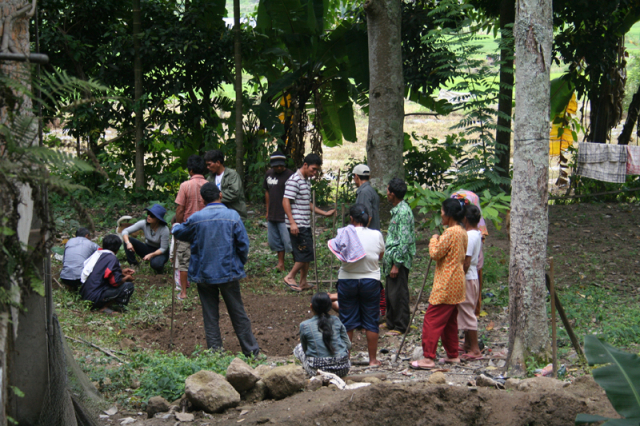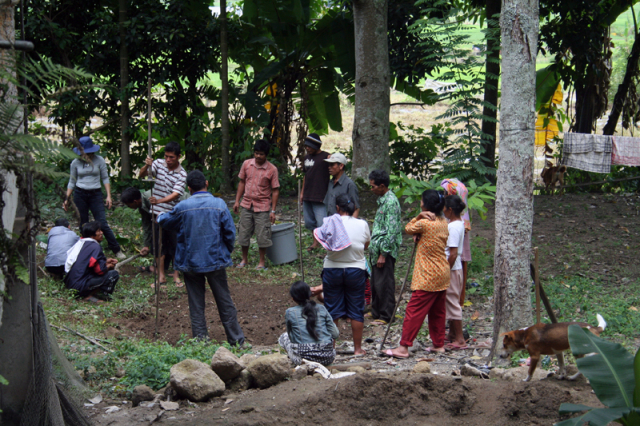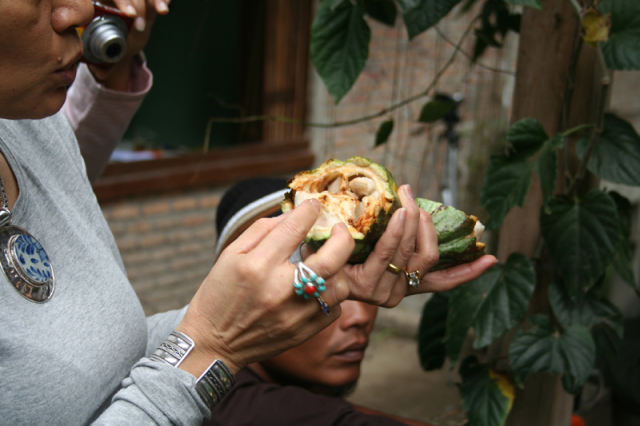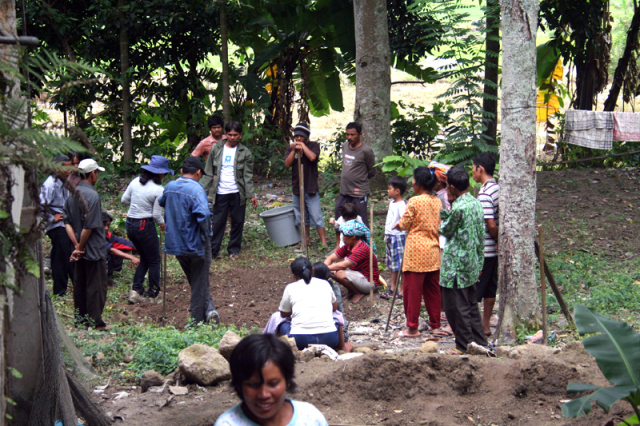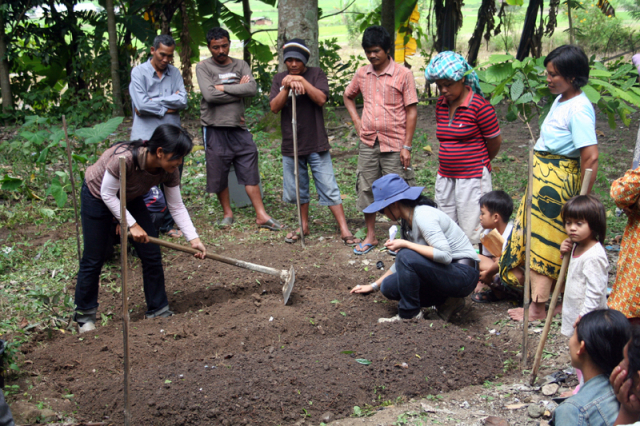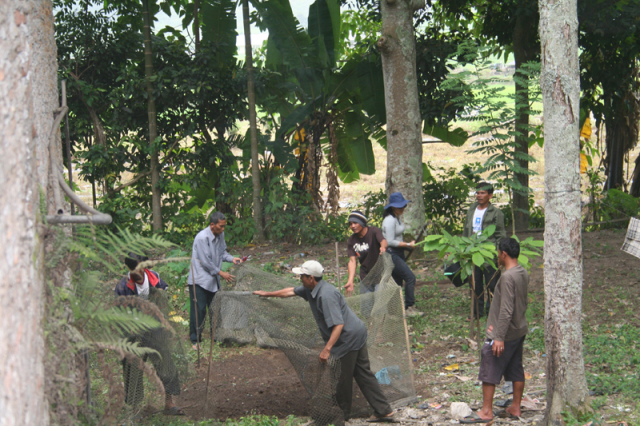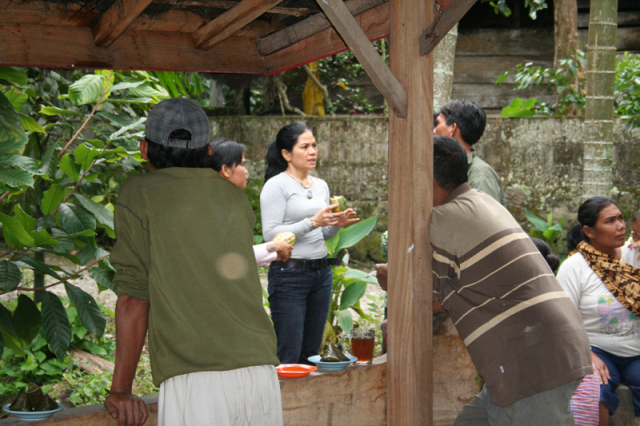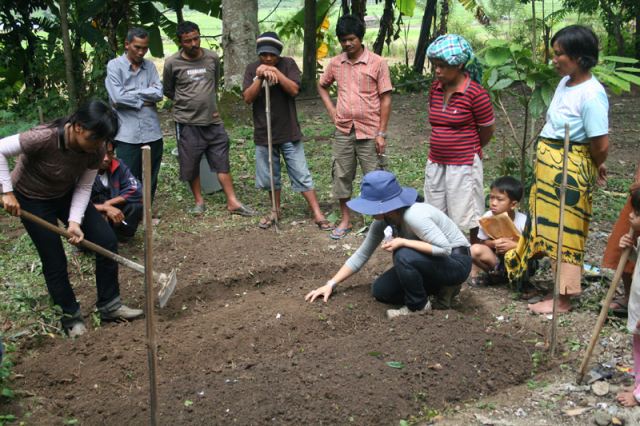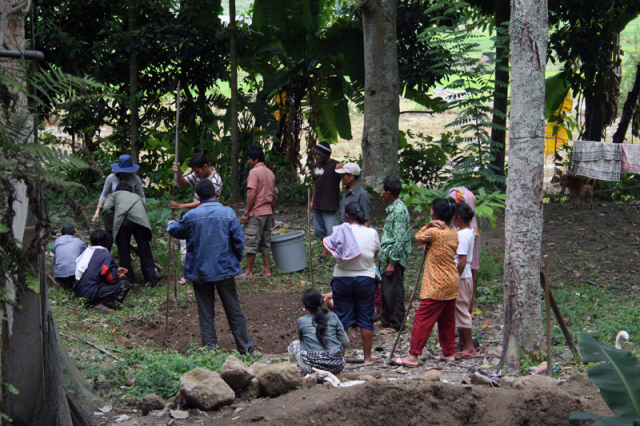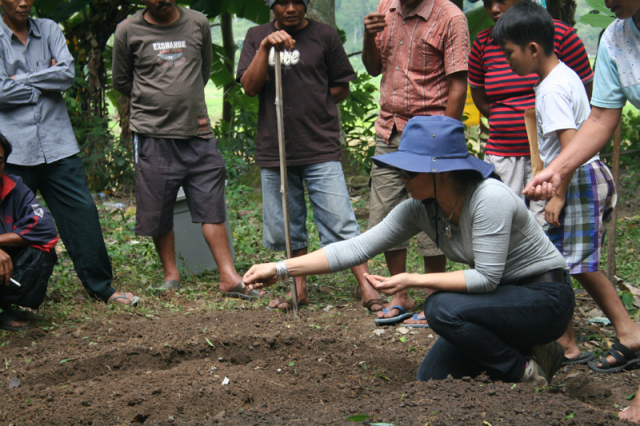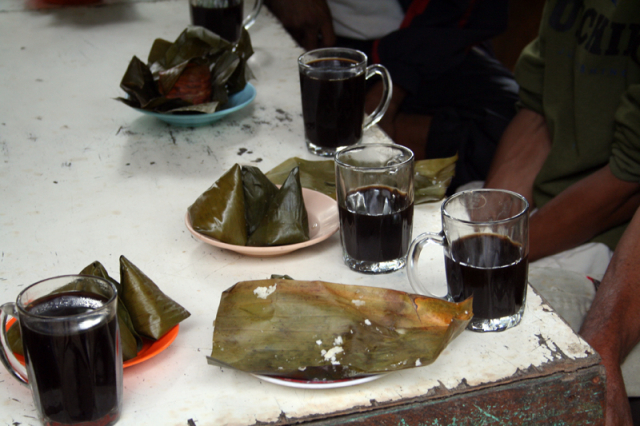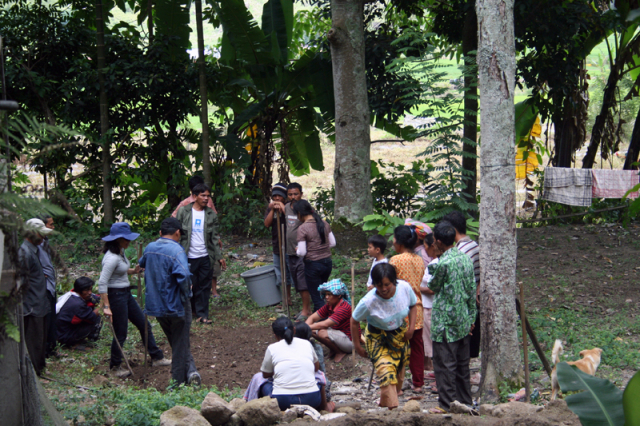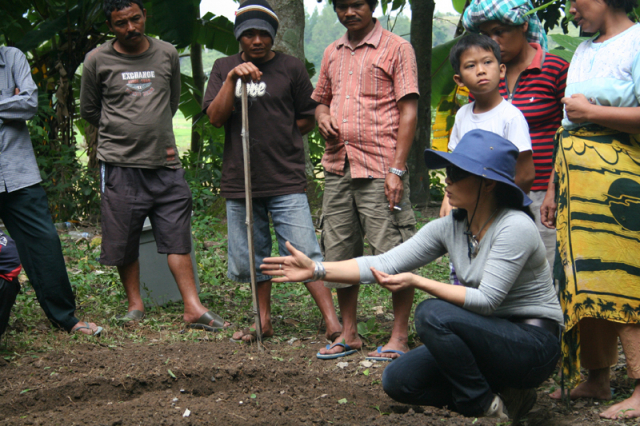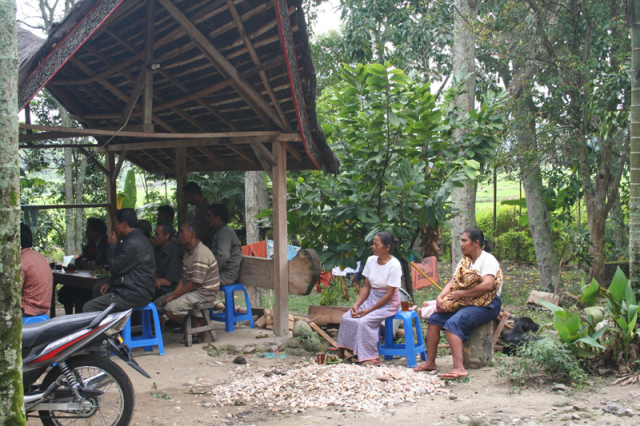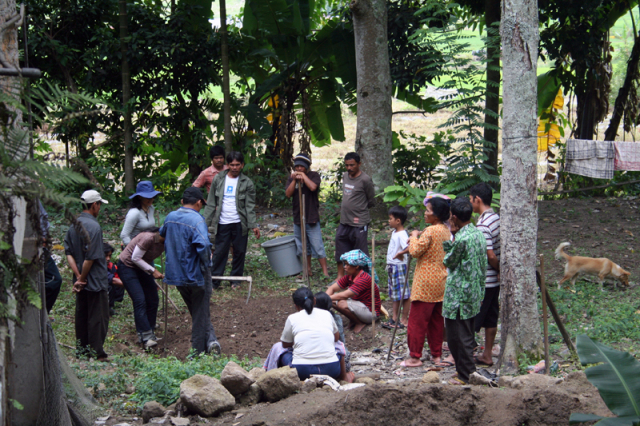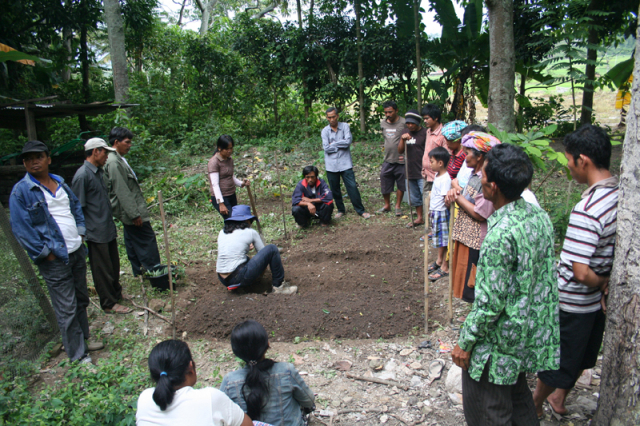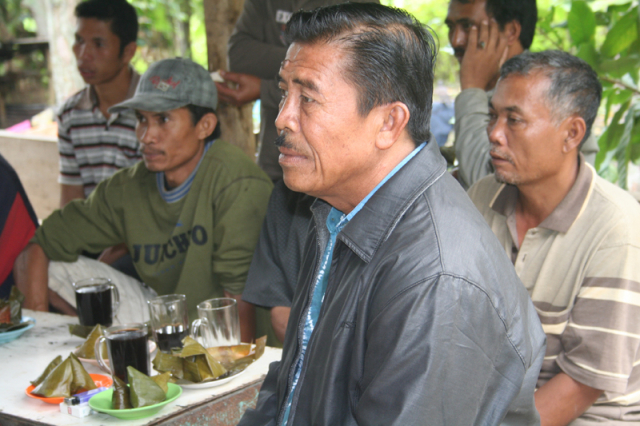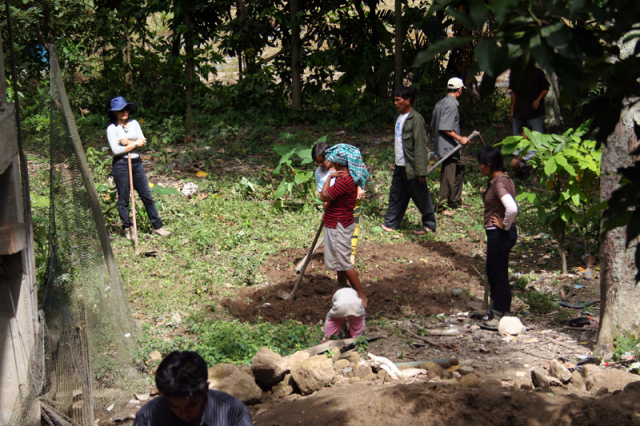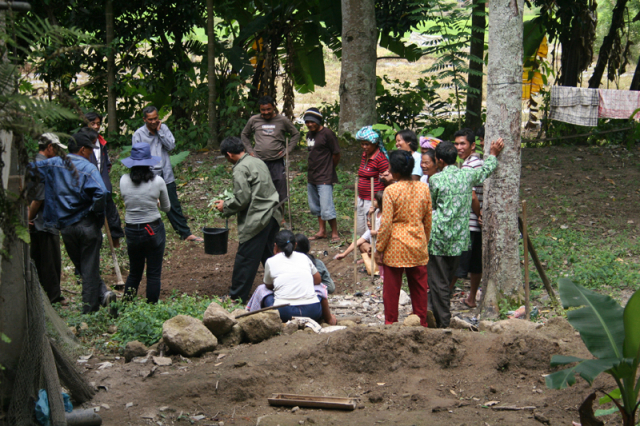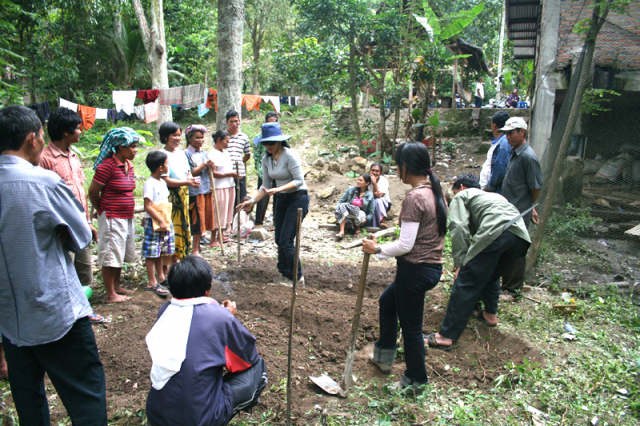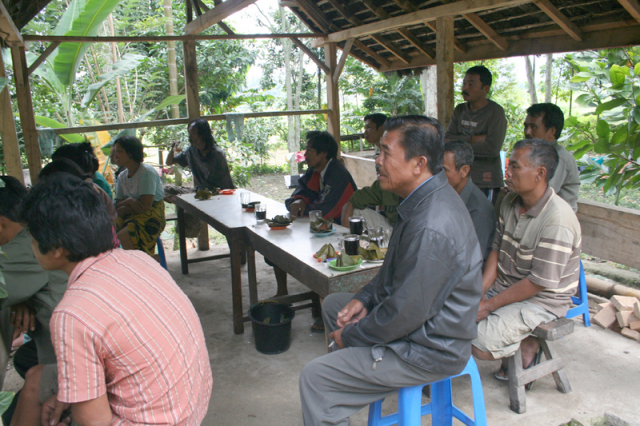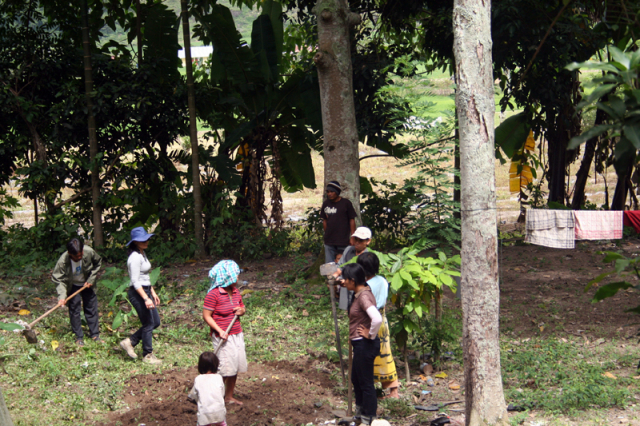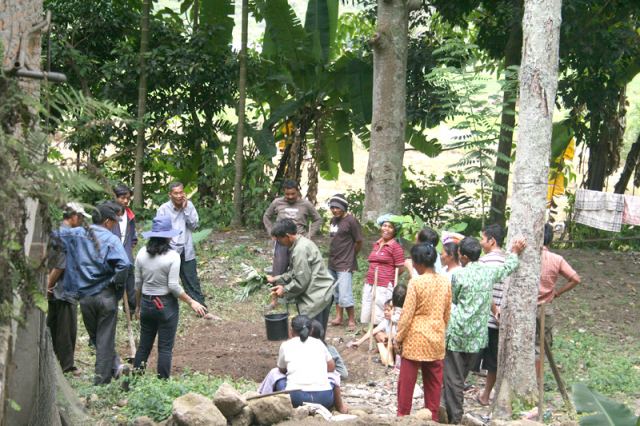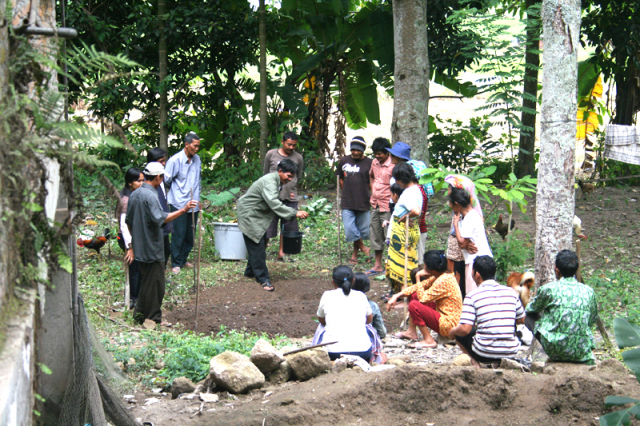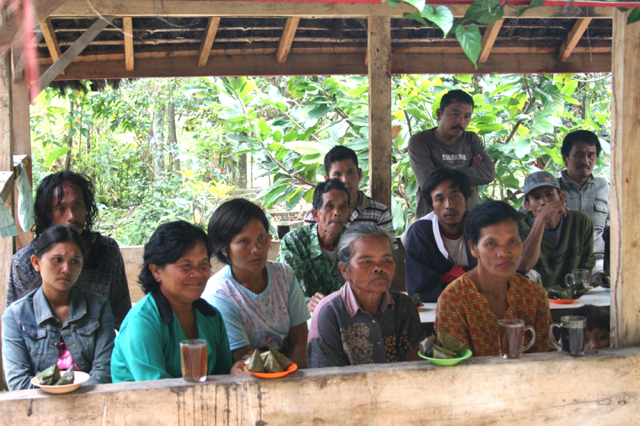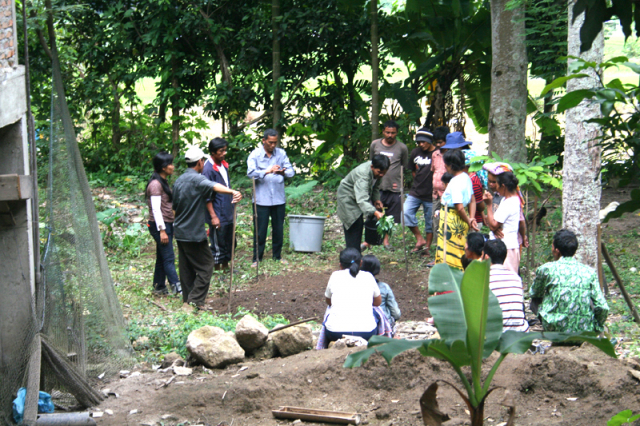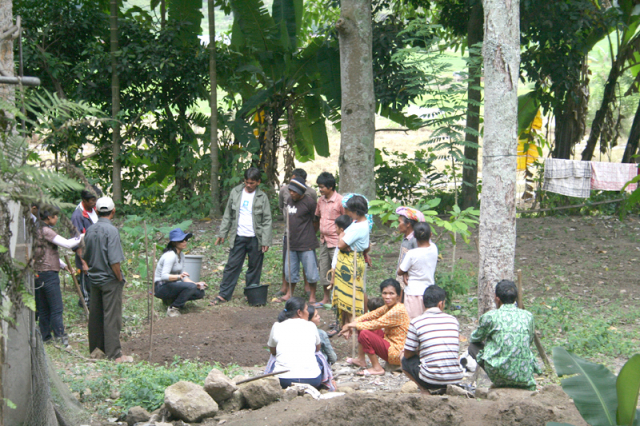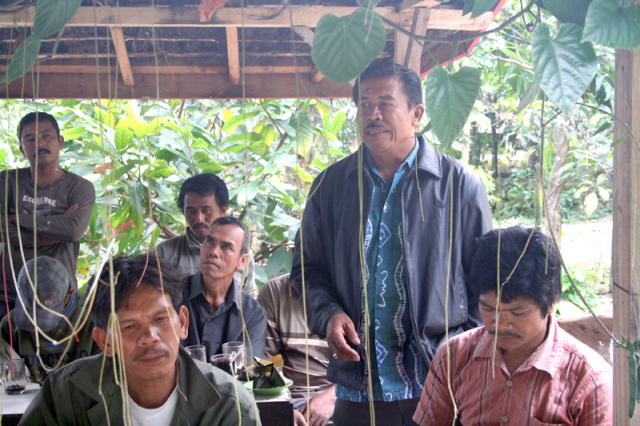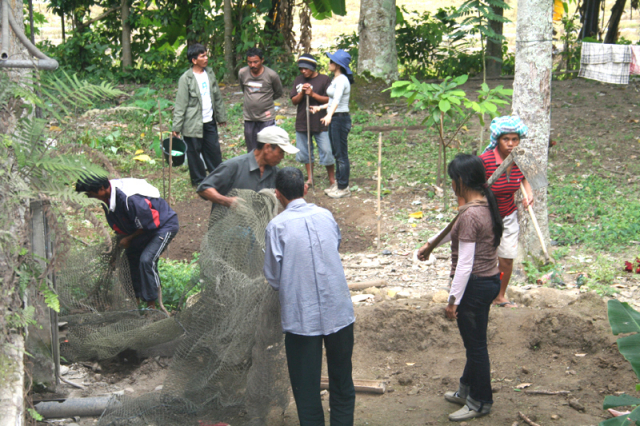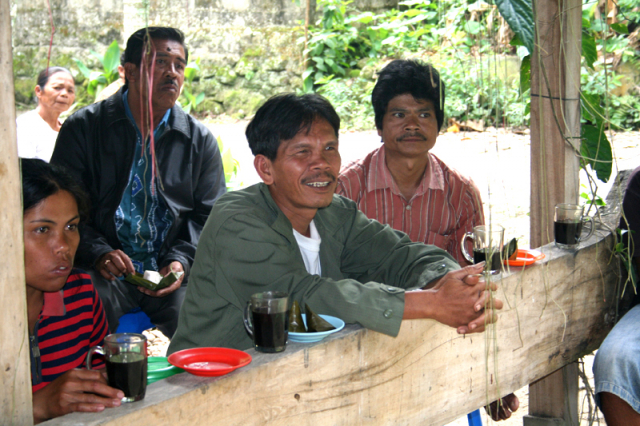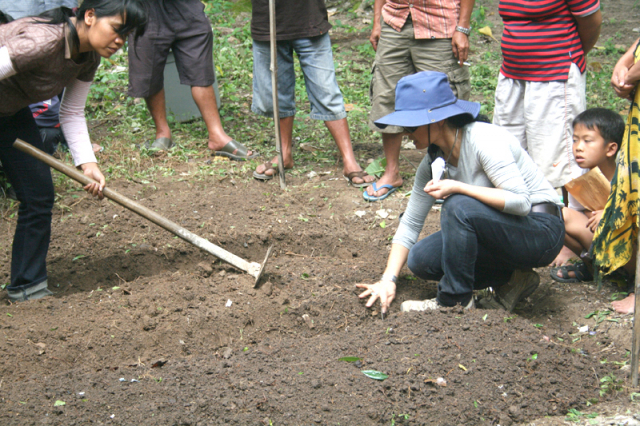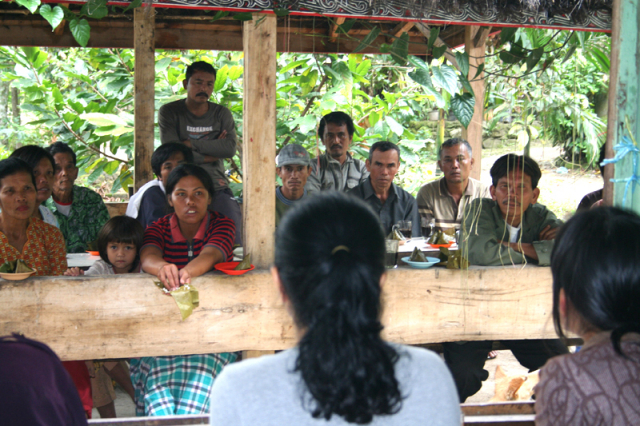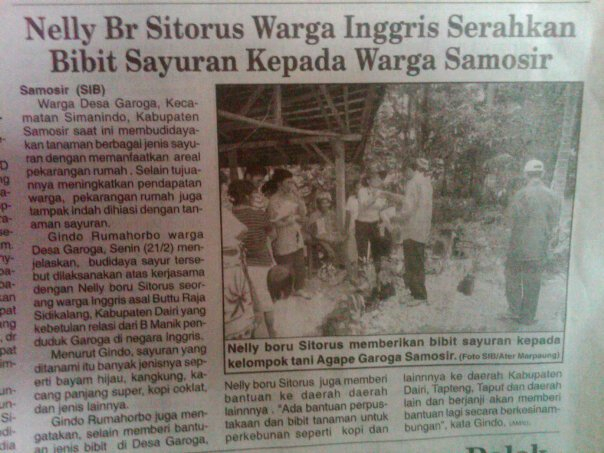If you travelled in North Sumatra and pay attention to the gardens around people’s houses, you would be surprised to realise the amount of empty land, dormant with nothing growing on them, and yet people here will literally go to the market and buy fruit and vegetables with money they don’t actually have.
Singapore’s late Prime Minister, Lee Kuan Yew once said, Indonesia is so fertile that if you pushed a dry stick to the soil, it would sprouts. Sadly, many people in Indonesia are not realising how lucky they are to have such abandonment of land around their homes, where they could grow food for their own consumption. Everyone can save up money to buy things they cannot grow, such as books, bicycles, shoes, TV, and other things.
In this part of the world, people are encouraged to grow cash crops. Being wealthy is the symbol of power, wealthy people often gained more respect, hence most people want to be wealthy. Wealth is often measured with material possession and money, and people who lack education has very little understanding about the balance of wealth and health. In order to make money, people often forget, they also need to eat well. Everything they grow will be destined for the market place, to make money. Beautiful fruits and vegetables will often be sold to buy unnecessary modern processed food.
It is unfortunate that education on a good living, such as living in a healthy and beautiful environment with good access to affordable food from sustainable, self-sufficient farming, is very limited.
In February this year, working with the local people, we have managed to arranged a small workshop in Garoga village of Samosir island, in Lake Toba. The aim of the workshop was to encourage the local people to turn their dormant gardens into productive fruit and vegetable gardens. On this occasion, we distribute fruit and vegetable samplings and seeds and discussed organic farming, making compost, and how to process their fruits and vegetable into delicious food for the family. We were truly impressed by the number of turn-outs.
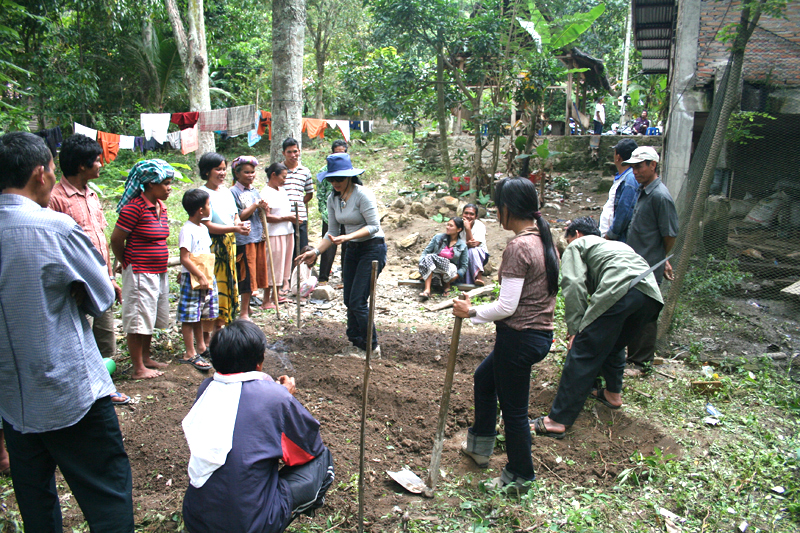
Having very close interactions with the local farmers here made us realised that farmers who have been growing fruits and vegetables almost all their lives have very little idea about their health benefits. In this part of this world, farmers usually copy each other style of living, style of farming and have unhealthy competitions on how to achieve their social statuses in society.
Farmers here don’t really explore how to processed vegetables and fruits for their everyday pleasure, to feed their families with good nutritious food. People have very limited ideas or knowledge in food recipes, hence they can’t be bothered to grow them for their own consumptions.
During this meeting with the farmers, we shared some tips on how to grow fruits and vegetables around their homes, so that they can harvest healthy food without the need to spend money to feed their families. Each farmer received vegetable seeds, fruit trees, Clove saplings, and some received secateurs.
This event proofed to be a very valuable experience and hope to create many more environmental and family programs going forward. Our sincere gratitude to Rosmelina Sinaga who has very kindly volunteered to help organise the event. Our sincere gratitude to Mr & Mrs Gindo Rumahorbo, who hosted this event in their (happened to be) a dormant garden, a perfect example for this project.
Our huge gratitude to Tara Pakpahan, our Project Manager, who helped source all the vegetable seeds and made all the necessary travel arrangements for the team during our visit here. Thank you, Tara.
